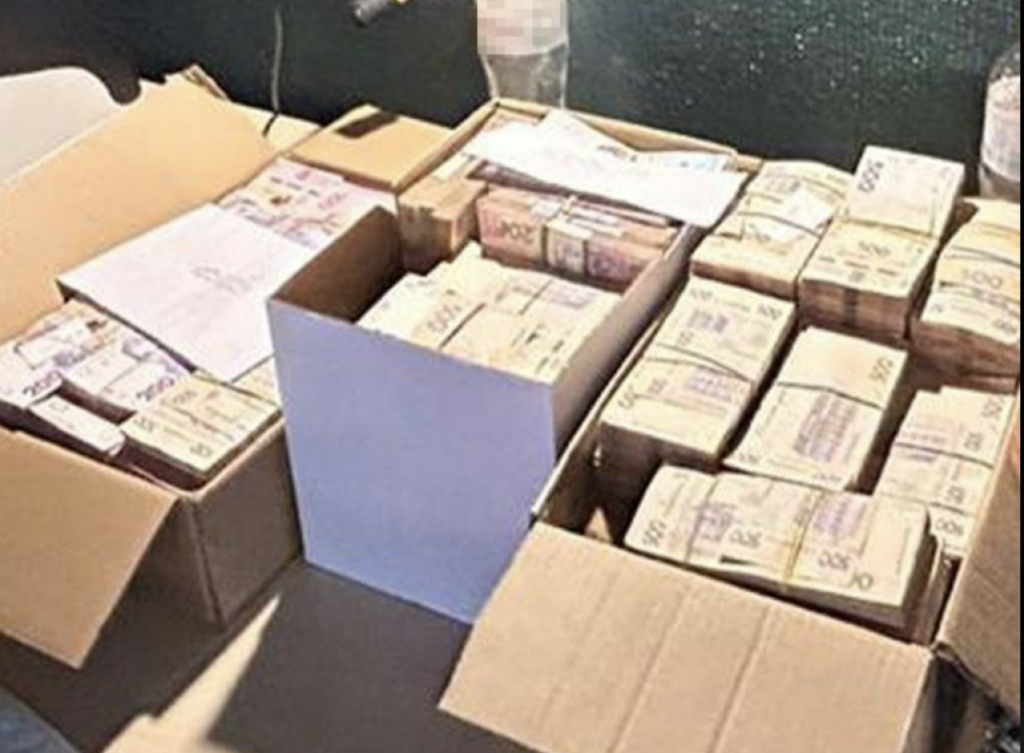The arrest of Ukraine’s deputy energy minister, Oleksandr Kheil, on corruption charges by the Security Service of Ukraine (SBU) has sparked a significant development in the country. Kheil allegedly demanded bribes from representatives of a state-owned coal company to facilitate the transfer of mining equipment from a frontline hotspot in Donetsk Oblast to the Lviv-Volyn region. The SBU reported that three other accomplices were involved in this corruption scheme, and they were caught receiving bribe payments. Kheil and his co-conspirators face up to 12 years in prison if convicted. The Energy Ministry has stated that it is cooperating with law enforcement authorities to ensure a thorough investigation into the matter.
In a separate incident, a whistleblower exposed information on the National Anti-Corruption Bureau of Ukraine (NABU) allegedly leaking case material to suspects in a high-profile corruption investigation. The whistleblower also revealed that the suspects were informed about upcoming searches, leading to concerns about the integrity of the anti-corruption efforts in the country. This revelation has raised questions about the effectiveness of NABU in combating corruption and whether internal reforms are necessary to address potential leaks within the organization. The top anti-corruption official has acknowledged the legal violations identified in this probe and emphasized the importance of addressing them to maintain public trust in anti-corruption efforts.
These recent developments highlight the ongoing challenges faced by Ukraine in combating corruption within its government institutions. The arrest of a high-ranking official like the deputy energy minister underscores the pervasive nature of corruption in the country and the need for stronger measures to hold individuals accountable for their actions. The involvement of state-owned companies and independent energy traders in corrupt practices further emphasizes the widespread impact of corruption on various sectors of the economy, hindering development and progress in Ukraine.
The legal ramifications of these corruption cases are significant, with potential prison sentences for the individuals involved. The charges of receiving bribes and engaging in corrupt practices carry severe penalties under Ukrainian law, indicating a commitment to rooting out corruption at all levels of government. The cooperation between the Energy Ministry and law enforcement authorities in conducting a thorough investigation demonstrates a united front in addressing corruption and upholding the rule of law in Ukraine. By holding corrupt officials accountable, the government is sending a strong message that corrupt practices will not be tolerated in the country.
The role of whistleblowers in exposing corruption and misconduct is crucial in promoting transparency and accountability within government institutions. The willingness of individuals to come forward with information about corrupt activities helps to uncover wrongdoing and initiate investigations that can lead to justice being served. In the case of the NABU leak scandal, the whistleblower’s actions have shed light on potential breaches of trust and integrity within the organization, prompting a closer examination of internal processes and safeguards to prevent future leaks. Protecting whistleblowers and ensuring their anonymity is vital in maintaining a culture of accountability and anti-corruption efforts.
As Ukraine continues to grapple with corruption and its negative impact on governance and economic development, the public’s support for independent journalism and investigative reporting is crucial. By joining the fight against corruption and standing up for transparency and accountability, individuals can contribute to the push for meaningful reforms and greater integrity within government institutions. Upholding the principles of democracy and the rule of law requires a collective effort from all sectors of society, and supporting independent journalism can help to uncover corruption, hold officials accountable, and promote a culture of honesty and integrity in Ukraine.


